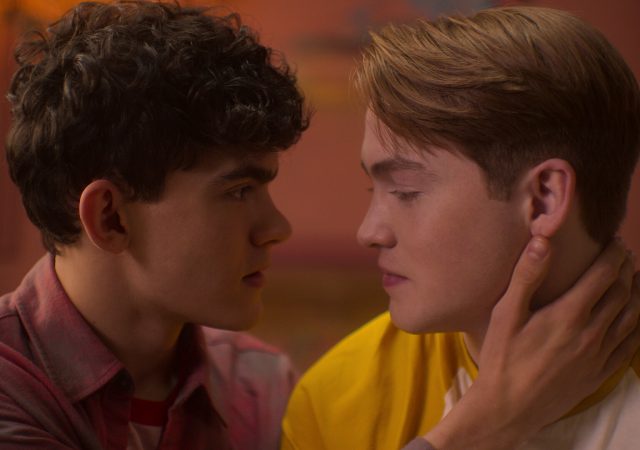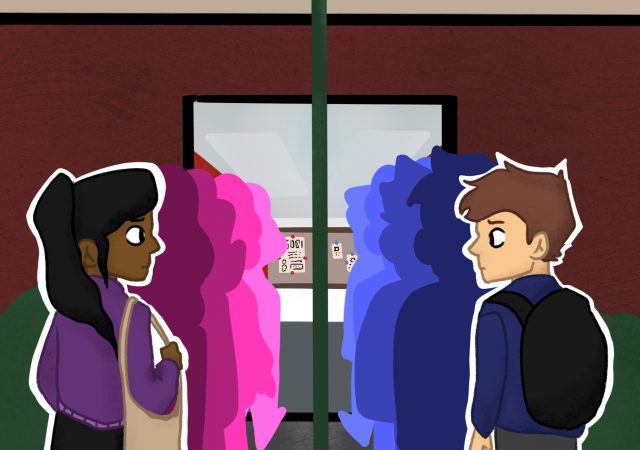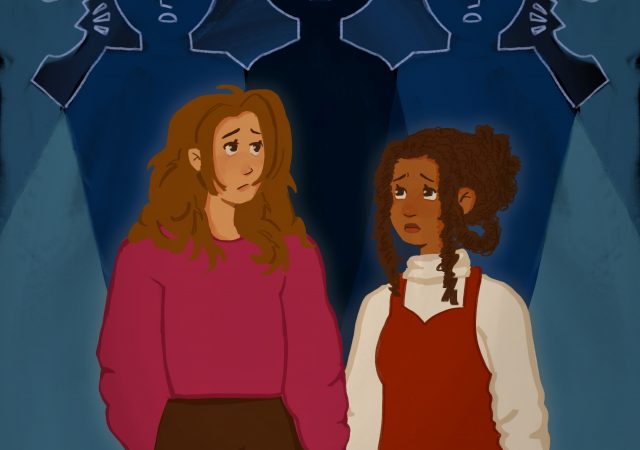Our OutWrite staff loves queer media! Here are some of our favorites from this summer:
Gay Wrongs, and Why I Support Them — On “Bottoms” and Queer Irreverence
Lesbians have never looked as hot as when they are covered in the blood of football jocks like the characters of “Bottoms,” the instant classic lesbian rom-com movie of the year. “Bottoms” — directed by Emma Seligman — follows Josie (Ayo Edebiri) and PJ’s (Rachel Sennott) attempt to woo their respective love interests, Isabel (Havana Rose Liu) and Brittany (Kaia Gerber), with a faux all-women’s self-defense fight club. The film screams of a dark humor and irreverence rarely seen in LGBTQ+ media — a refreshing new take that presents audiences with queer, gray morality, or what I lovingly call ‘Gay Wrongs’.
Heartstopper Season 2: Grieving Something I Didn’t Know I Lost
When Season 1 of “Heartstopper” came out in April 2022, I was a senior in high school. I was coming out of yet another situationship with a straight guy. My story was classic: grow close to him, develop feelings, question whether or not he’s straight, confess.
Letter From The Editor (Spring 2023)
Illustrated by Charis/OutWrite This letter was originally published in our Spring 2023 print issue “Color.” Dear Reader, I stand at the end of an era. To be entirely dramatic, I have put my heart and soul into this magazine for…
Queering Masculinity in “Stone Butch Blues”
Leslie Feinberg’s historical novel “Stone Butch Blues” voices the experiences of many butch and transmasculine individuals. In a transformative exploration of queer recognition and the way it damns and redeems us, the novel unearths critical queer history and underlines the importance of intersectional solidarity. Courage, loneliness, and understanding echo through the story of the butch protagonist, Jess Goldberg.
Araki and the Apocalypse
It’s not every day that your new gay crush climbs through your window, confesses their love, and then promptly explodes in a shower of blood “Alien” style, leaving behind a cockroach-like extraterrestrial. But it happens in Gregg Araki’s surrealist sextravaganza “Nowhere.”
To Walk A Mile in Her Shoes You Must First Wear Her Skin
The horror genre has a transphobia problem. I’m an avid horror fan whose apartment requires a warning to enter with all the horror villains plastered to my walls. I am also a transgender person who knows that negative depictions of my community, however unintentionally harmful, do have an impact. To understand these consequences, I will be discussing four horror films that feature transmisogynist tropes and explore how their portrayal causes real harm to the trans community.
What the Devil is That Racket?!
On March 26th, 2021, Lil Nas X dropped “MONTERO (Call Me By Your Name),” the lead single for his album “MONTERO” and a passionate declaration of queer love and desire. The single by itself would likely have received a largely positive reaction, as Lil Nas X already had considerable recognition. However, “MONTERO”’s music video featured Lil Nas X as an angel who rides down a pole from Heaven to Hell and gives the Devil a lapdance.
Queers Kill Cats, Too: A Review of “Gummo”
Harmony Korine’s 1997 directorial debut “Gummo” is one of those movies that gets swallowed up by its own images. More than any plot event, people remember “Gummo” for the bathtub spaghetti scene, the Bunny Boy’s hat, and the unique shape of Jacob Reynold’s head as Solomon on the film’s box art. This is strange, though, considering that the film itself aspires to be so much more. Revisiting “Gummo,” it reads as an attempt to address as many social and political issues as possible by slotting them into the film’s Midwestern setting. Over the course of its runtime, “Gummo” explores themes ranging from sexual assault to racism to misogyny to ableism and eventually to homophobia, transphobia, and beyond, all to wildly varying degrees of success.






























